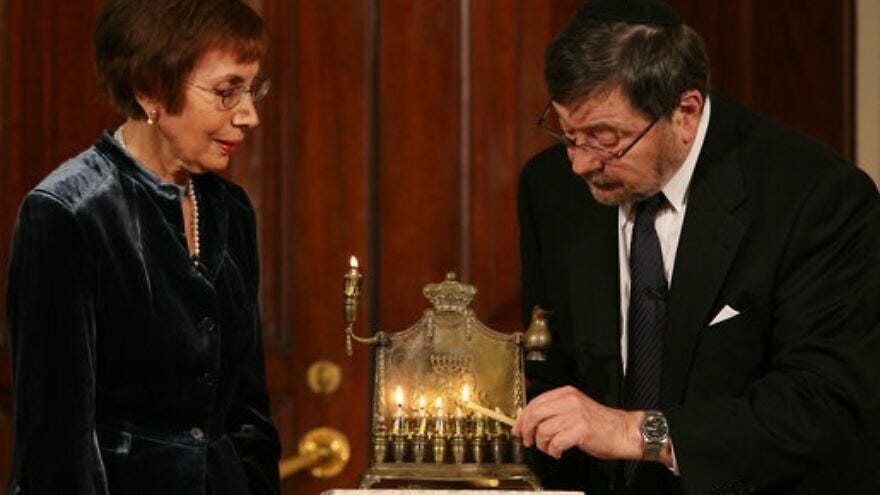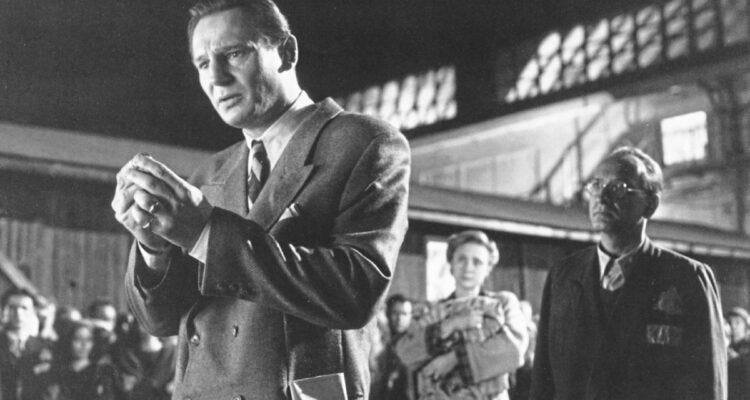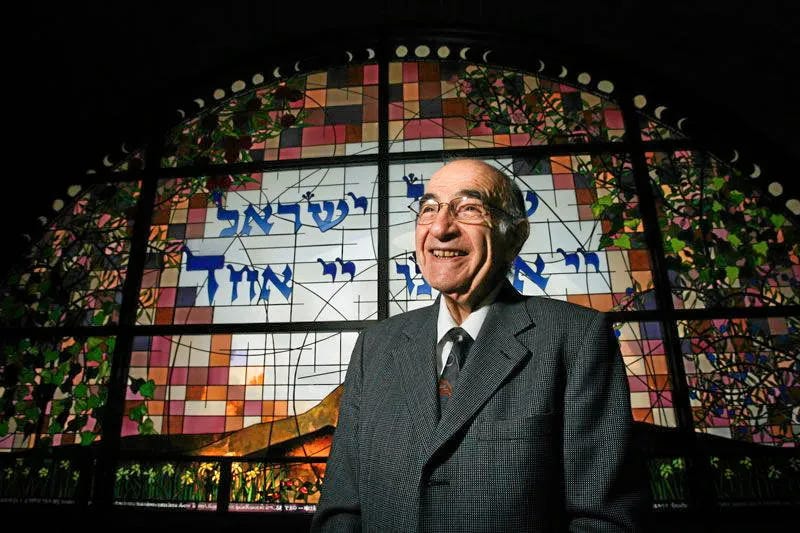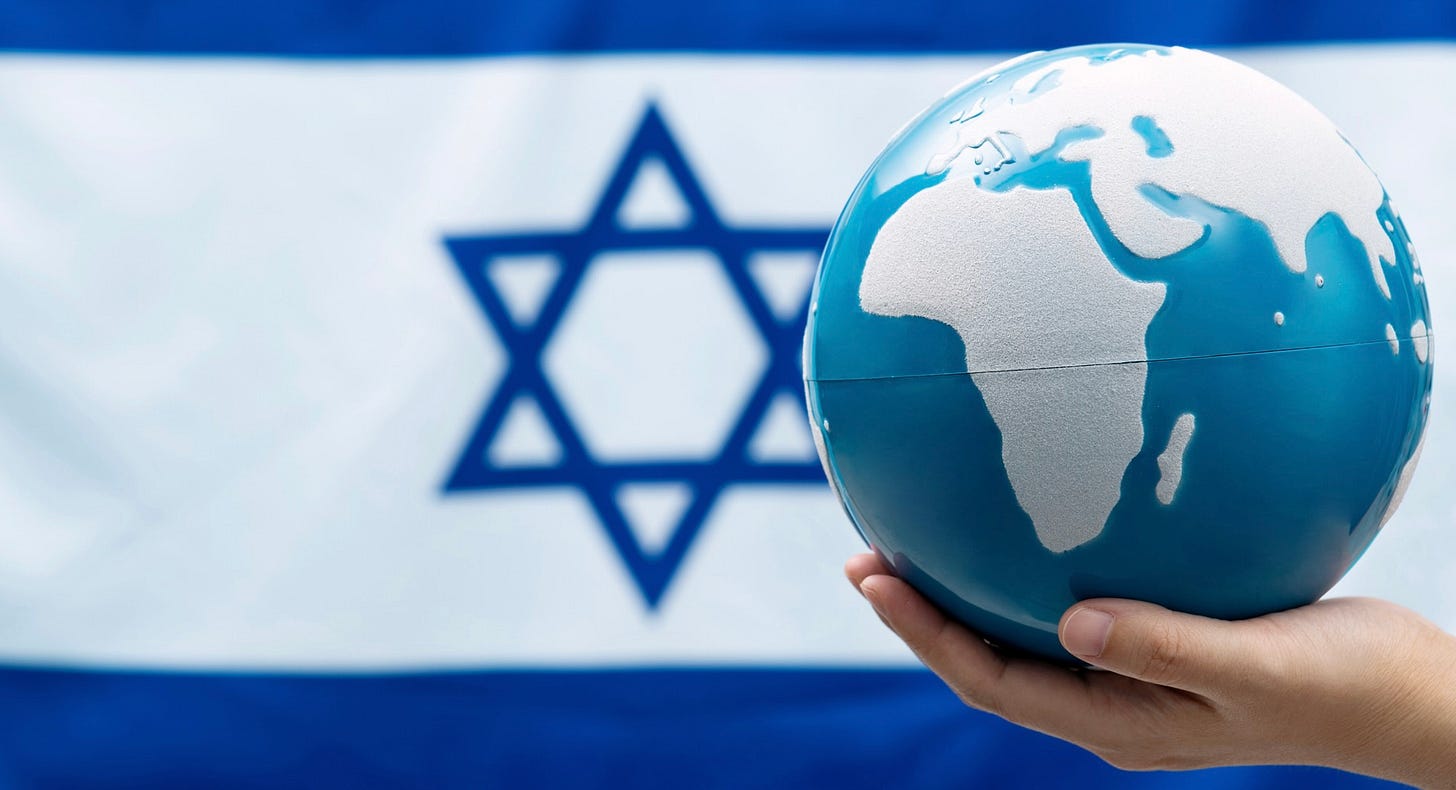On Feb. 1, 2002, nine days after Islamist terrorists in Pakistan kidnapped 38-year-old American Daniel Pearl, they switched on a video camera — and beheaded him. The killers then posted the heinous act online for all to see. But just before his murder, Daniel spoke 11 final words that the world would not soon forget:
“My father is Jewish. My mother is Jewish. I am Jewish.”
In the years that followed his gruesome death, many wondered what Daniel meant, or how he felt, in that exact moment when he spoke those words. And while we can never know the precise answer to that question, Daniel’s father shared his thoughts one year after the loss of his son. On Daniel’s first yahrzeit, at a multi-faith service in New York City, Judea Pearl explained:
“To Danny, ‘I am Jewish’ meant ‘I must understand… I am possessed with a historically-baked obsession to understand and repair things, because my wandering ancestors, hardened by centuries of persecution and discrimination, have taught me to mistrust all dogmas and ideologies and to question authority and the status quo and conventional wisdom.’”

It was no accident that Mr. Pearl chose the word “repair.” It comes from the age-old Jewish concept of tikkun olam. The expression, which first appeared in the Talmud two millennia ago, is commonly translated from Hebrew to English as “repair the world.”
At the time of his abduction, Daniel was the Southeast Asia bureau chief for The Wall Street Journal and living in Mumbai. On that tragic day, he was on his way to a restaurant in Karachi to meet a potential source for his investigation into alleged links between the “shoe bomber,” Richard Reid, and Al Qaeda. But it was all a devious setup arranged by a Pakistani militant named Ahmed Omar Saeed Sheikh.
Daniel Pearl’s hunger to understand the world and make a contribution to its repair was foreshadowed 20 years earlier. As an undergraduate at Stanford University, he founded a publication called Stanford Commentary. Daniel’s goal was to provide a platform where his classmates could speak their minds freely on contentious issues — while also getting a better understanding of them by digesting the perspectives of their peers.
Tikkun olam has much evolved as a concept over the centuries. In its original Talmudic expression, nearly 2,000 years ago, “mipnei tikkun ha-olam” meant “for the sake of betterment of society.” But at the time it applied to rabbinic interventions in the legal system that were taken to maintain social order.
In the Middle Ages, tikkun was redefined by the mystical branch of Judaism known as Kabbalah. One of its leading thinkers, Rabbi Isaac Luria, preached that Jews could be full partners with God in bringing about redemption through prayer and meditation, and by performing His commandments.
It wasn’t until the 1920s that tikkun olam came to be viewed as individuals taking actions to materially improve the world. In that historical moment, Jewish leaders like Rabbi Abraham Isaac Kook applied tikkun more narrowly to the goal of establishing the State of Israel. But soon enough, a world-shaking tragedy would change everything…
The first time I learned about tikkun olam was in 1993, when I was covering the release of Schindler’s List and had the chance to interview the book’s author and two of the 1,200 Holocaust survivors who were saved by German industrialist Oskar Schindler. In the film’s climactic scene, Schindler’s Jewish workers give him a gold ring they’d fashioned out of melted-down fillings from their teeth. Engraved on the inside was a paraphrase from the Talmud, which, translated to English, means: “Whoever saves one life, saves the world entire.”

Those words and that experience stuck with me, yet at the time I had no idea how the genocidal horrors of the Holocaust would soon motivate many to reinterpret tikkun olam as a universal call to engage in righteous action. In 1966, the author and influential conservative Rabbi Harold Schulweis wrote in Commentary that Jews should follow the example of Abraham in questioning divine moral lapses. He then concluded:
“Man is called upon to exercise his moral freedom and responsibility in this world. The high status conferred upon man as a morally competent partner of God produced and still cultivates a social consciousness and activism in the knowledgeable Jew.”

Of course, a person need not be Jewish nor risk their life to “exercise morality and responsibility.” Anyone can play a role in the holistic mission of improving our world. It might be spending an hour mentoring a young person. Or lending an ear when a person in pain really needs it. It can be as simple as making a conscious effort to treat everyone with a basic level of respect. We human beings make about 35,000 decisions per day; there are countless opportunities to consider the bigger picture.
There are some folks who think that the recent increase in tikkun olam’s mainstream popularity may dilute its power as a concept. I do not. In fact, I believe that the diametrical opposite is true. Making a positive difference is ultimately a game of addition. It is not a goal achieved through philosophical exclusion or by splitting semantic hairs. When it comes to practicing virtue — the more the merrier.
> > >
Ten years after his murder, Daniel Pearl’s parents published a book that included 146 answers to one question: “What do the words ‘I am Jewish’ mean to you?” Rabbi Naamah Kelman, a descendant of 10 generations of rabbis and the first woman to ever be ordained as such in Israel, alluded specifically to tikkun olam in her response. Then she added:
“I believe that Daniel wanted the world to know he was a Jew because his instincts to probe, to challenge, to reach out, to love, and to laugh came from the depths of his Jewish soul. He was brutally murdered simply because he was a Jew. But until that horrendous moment, he lived and acted in the world to bring a brighter future for all humankind. Daniel Pearl summoned us to do no less.”

May that universal calling to take action in order to achieve a better world “for all humankind” serve as JEWDICIOUS’ North Star as we share our thoughts and experiences with you on these pages.






Thank you for this.
I do remember Daniel Pearl and all that happened . It was important to hear about it again .
What a beautifully written article. Great and powerful story.